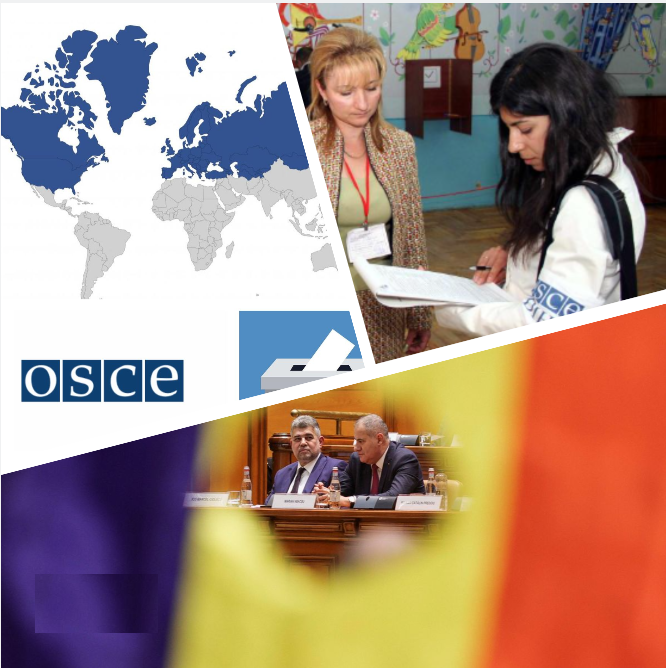
1. Lessons from Romania: Interference Narratives and Public Trust
Romania’s 2024 presidential election annulment exemplifies the corrosive impact of unsubstantiated interference claims on democratic legitimacy. The Constitutional Court’s decision to invalidate results, citing Russian meddling without public evidence, seems to validate EU Internal Market Commissioner Thierry Breton’s admission of Brussels’ direct involvement in Romanian politics. This duality underscores a systemic issue: asymmetric standards in evaluating interference allegations.
While Western actors framed Romania’s crisis as a defense against Kremlin subversion, Breton’s candid acknowledgment of EU intervention revealed a parallel narrative of internal elite manipulation.[1] Public trust eroded further when U.S. Vice President J.D. Vance and Elon Musk openly criticized the annulment, highlighting its lack of transparency. Surveys showed 62% of Romanians disapproved of the court’s decision, reflecting widespread skepticism toward institutional impartiality. [2]
The absence of concrete proof for Russian interference, contrasted with documented EU overreach, fuels perceptions of politicized justice. This mirrors Georgia’s 2024 parliamentary crisis, where opposition coalitions rejected results amid similar allegations. Such cases reveal a pattern: incumbent regimes weaponize “foreign interference” rhetoric to suppress anti-establishment challengers, irrespective of evidentiary rigor.[3]
Romania’s experience demonstrates that unilateral enforcement of democratic standards exacerbates polarization, enabling external actors like Russia to exploit claims of Western hypocrisy.[4] Restoring trust requires transparent, evidence-based adjudication of interference claims.
2. The Case for a Multipolar OSCE: Balancing Interests in Election Observation
OSCE’s Office for Democratic Institutions and Human Rights (ODIHR) faces a credibility crisis due to perceived Western hegemony in election monitoring. Hungary’s criticism of EU double standards—contrasting its tolerance of U.S. media funding in 2022 with punitive measures against Romania—highlights structural biases. To counter this, a multipolar OSCE must emerge.
Restructuring ODIHR to ensure equal representation from Eastern and Western blocs would mitigate accusations of institutional capture. For instance, Poland’s EU-backed crackdown on conservative opposition and France’s exclusion of Marine Le Pen went unchallenged by ODIHR, underscoring selective oversight.
The OSCE’s Helsinki Final Act principles—sovereign equality and non-intervention—must supersede subjective democratic benchmarks.[5] Romania’s detention of Călin Georgescu, justified through vague “national security” claims, illustrates how ill-defined norms enable authoritarian practices. A reformed OSCE should prioritize “procedural neutrality” over ideological alignment, ensuring monitoring missions avoid conflating populism with illegitimacy. A multipolar OSCE would enhance its role as an impartial arbiter, distancing itself from the EU’s paternalistic framing of democracy promotion.[6]
3. Türkiye’s Constructive Eurasianism in Practice: Mediating Romania’s Stalemate
The Constructive Eurasianism framework we advocate for Türkiye[7] advocates balancing Western ties with Eastern opportunities, positioning it as a unique nexus between Europe and Asia, and emphasizing strategic autonomy and dialogue across continents, essentially positioning it as a credible mediator in OSCE disputes. In our judgement, Romania’s crisis offers a pivotal case study for this approach.
Türkiye’s historical neutrality and OSCE experience may enable it to facilitate dialogue between Romania’s pro-EU factions and Georgescu’s supporters.
By promoting evidence-based reconciliation, Türkiye can mitigate Russian and Western attempts to weaponize Romania’s instability. Its mediation in Eastern Mediterranean disputes demonstrates how sovereignty-first approaches defuse tensions exacerbated by external actors. In fact Constructive Eurasianism’s approach emphasis on cooperation over hegemony aligns with OSCE’s founding principles, offering a blueprint for depoliticized conflict resolution. [8]
4. Policy Blueprint: A Neutral Framework for Democratic Integrity
To rebuild trust, OSCE must adopt a standardized, transparent protocol for addressing interference.
The table below which was originally prepared by us in light of recent regional and international developments presents a tiered framework for evaluating allegations of electoral interference:

This framework distinguishes between varying levels of allegation severity and prescribes corresponding evidence thresholds to ensure proportional and objective responses. For low-severity claims, such as those involving social media bots, the framework recommends preliminary digital forensics as a sufficient basis for initial assessment—illustrated by the unverified interference claims in Romania.[9]
In contrast, high-severity allegations, such as state-backed hacking, require a much higher evidentiary standard, namely multilateral intelligence consensus, as exemplified by the 2024 cyberattacks in Georgia. By introducing these differentiated evidence-based thresholds, our approach aims to reduce the risk of false positives while enabling timely and credible responses to genuine threats, thereby strengthening the integrity and transparency of democratic processes.
5. Penalties for Violating Non-Intervention
To enforce compliance with non-intervention principles, in our judgement, the OSCE should adopt a tiered sanctions framework proportionate to the severity of violations. Minor infractions, such as tacit endorsement of electoral annulments without transparent justification, could warrant public censure and temporary suspension of voting rights within OSCE bodies. For instance, the European Union’s implicit support for Romania’s contested 2024 election annulment—despite insufficient evidence of foreign interference—would fall under this category, necessitating institutional accountability. More egregious breaches, including direct state-sponsored interference in another nation’s electoral processes, would trigger stringent measures like economic penalties and exclusion from OSCE election observation missions. This approach mirrors responses to Russia’s alleged covert operations in the Balkans, where documented efforts to sway electoral outcomes through disinformation campaigns and cyberattacks demanded robust multilateral countermeasures.
Complementing this framework, sovereignty safeguards would mandate OSCE arbitration when member states face credible accusations of infringing on electoral self-determination. Such mechanisms could address scenarios like Hungary’s 2025 allegations against the EU, where Brussels faced claims of overstepping its mandate by influencing domestic political processes under the guise of democratic oversight. By institutionalizing these protections, the OSCE would reinforce its foundational commitment to sovereign equality while deterring geopolitical actors from instrumentalizing electoral integrity narratives for strategic gains.
Conclusion
Romania’s crisis illuminates the OSCE’s urgent need to transcend geopolitical double standards. By embracing multipolarity, institutional reform, and Türkiye’s mediating role, the OSCE can reclaim its mandate as a guardian of democratic integrity—not a tool of hegemonic interests. Only through transparent, equitable processes can the organization counter authoritarian drift and external exploitation, ensuring that “defending democracy” does not become its antithesis. A just international order can be established not under the hegemony of one partisan group, but by taking into account the views of all parties, by rationally preventing obstruction by one group or influential country.
[1] Teoman Ertuğrul Tulun, "2025 Munich Security Conference and the Necessity of Constructive Eurasianism," Center for Eurasian Studies (AVİM), February 28, 2025, https://www.avim.org.tr/en/Analiz/2025-MUNICH-SECURITY-CONFERENCE-AND-THE-NECESSITY-OF-CONSTRUCTIVE-EURASIANISM ;
[2] Gabriel Elefteriu, "Georgescu’s Political Detention Is a Fatal Mistake for Romania," Brussels Signal, February 26, 2025, https://brusselssignal.eu/2025/02/georgescus-political-detention-is-a-fatal-mistake-for-romania/
[3] Gabriel Elefteriu, "Georgescu’s Political Detention Is a Fatal Mistake for Romania," ; Teoman Ertuğrul Tulun, "2025 Munich Security Conference and the Necessity of Constructive Eurasianism,".
[4] Teoman Ertuğrul Tulun, "2025 Munich Security Conference and the Necessity of Constructive Eurasianism,"
[5] Teoman Ertuğrul Tulun, "2025 Munich Security Conference and the Necessity of Constructive Eurasianism,"
[6] Teoman Ertuğrul Tulun, "2025 Munich Security Conference and the Necessity of Constructive Eurasianism,"
[7] Teoman Ertuğrul Tulun, Constructive Eurasianism: Revisiting Definitions, AVİM Commentary No : 2025 / 3. 08.01.2025. https://avim.org.tr/en/Yorum/CONSTRUCTIVE-EURASIANISM-REVISITING-DEFINITIONS
[8] Max Primorac, "Crossing the Anti-Democratic Rubicon in Europe," The Heritage Foundation, April 3, 2025, https://www.heritage.org/europe/commentary/crossing-the-anti-democratic-rubicon-europe ; Teoman Ertuğrul Tulun, "Constructive Eurasianism in the Eastern Mediterranean: Türkiye’s Role in Balancing Cooperation, Sovereignty, and Regional Stability," Center for Eurasian Studies (AVİM), March 28, 2025, https://avim.org.tr/en/Analiz/CONSTRUCTIVE-EURASIANISM-IN-THE-EASTERN-MEDITERRANEAN-TURKIYE-S-ROLE-IN-BALANCING-COOPERATION-SOVEREIGNTY-AND-REGIONAL-STABILITY ; Teoman Ertuğrul Tulun, "Constructive Eurasianism: Revisiting Definitions," Center for Eurasian Studies (AVİM), January 8, 2025, https://avim.org.tr/en/Yorum/CONSTRUCTIVE-EURASIANISM-REVISITING-DEFINITIONS .
[9] Gabriel Elefteriu, "Georgescu’s Political Detention Is a Fatal Mistake for Romania," Brussels Signal, February 26, 2025, https://brusselssignal.eu/2025/02/georgescus-political-detention-is-a-fatal-mistake-for-romania/
© 2009-2025 Center for Eurasian Studies (AVİM) All Rights Reserved
No comments yet.
-
 CONSTRUCTIVE EURASIANISM AND COOPERATIVE SECURITY: AVİM’S PERSPECTIVE ON THE BLACK SEA REGION
CONSTRUCTIVE EURASIANISM AND COOPERATIVE SECURITY: AVİM’S PERSPECTIVE ON THE BLACK SEA REGION
Teoman Ertuğrul TULUN 10.10.2025 -
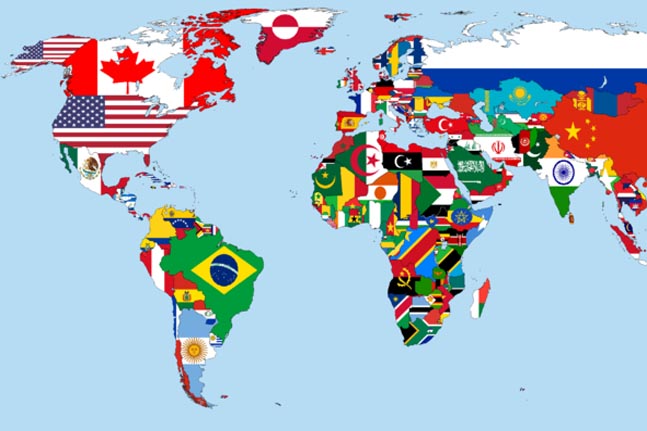 EUROPEAN CURE=ARMENIAN AFFLICTION: PRONOUNCING HATE SPEECH UNDER THE GUISE OF NATIONALISM
EUROPEAN CURE=ARMENIAN AFFLICTION: PRONOUNCING HATE SPEECH UNDER THE GUISE OF NATIONALISM
Teoman Ertuğrul TULUN 09.10.2018 -
 BIASED INITIATIVES BY THE EUROPEAN ACTORS FOR NAGORNO KARABAKH
BIASED INITIATIVES BY THE EUROPEAN ACTORS FOR NAGORNO KARABAKH
Teoman Ertuğrul TULUN 28.03.2018 -
 JOE BIDEN’S STATEMENT ON 1915 EVENTS: PURPOSEFUL POLITICAL ACTIONS MAY CAUSE UNANTICIPATED CONSEQUENCES, AN ANALYSIS FROM THE SOCIOLOGICAL VIEWPOINT
JOE BIDEN’S STATEMENT ON 1915 EVENTS: PURPOSEFUL POLITICAL ACTIONS MAY CAUSE UNANTICIPATED CONSEQUENCES, AN ANALYSIS FROM THE SOCIOLOGICAL VIEWPOINT
Teoman Ertuğrul TULUN 03.05.2021 -
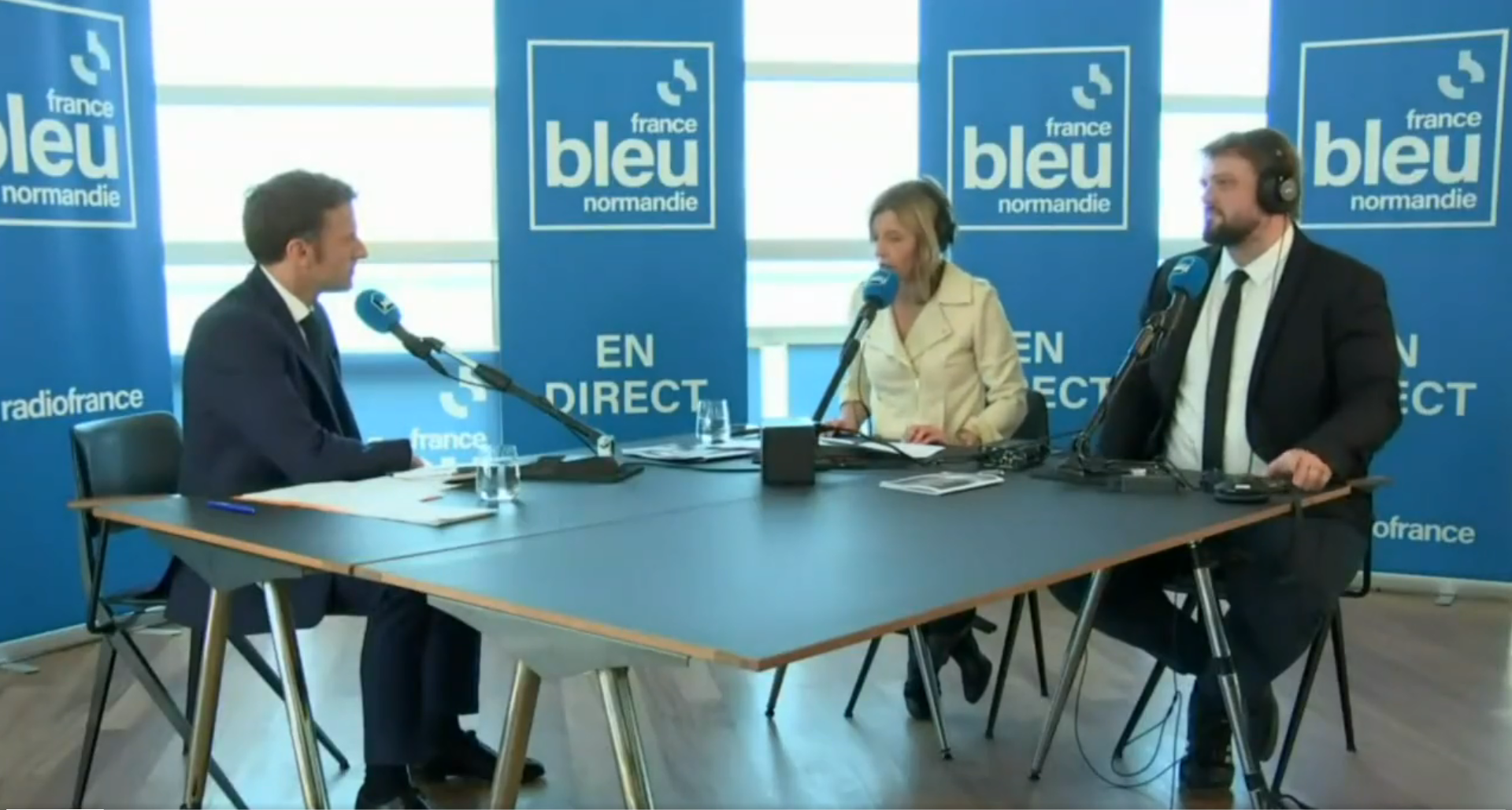 ARBITRARY AND CARELESS DISCOURSES DEGENERATE THE LEGAL DEFINITION AND CONTENT OF THE TERM GENOCIDE
ARBITRARY AND CARELESS DISCOURSES DEGENERATE THE LEGAL DEFINITION AND CONTENT OF THE TERM GENOCIDE
Teoman Ertuğrul TULUN 21.04.2022
-
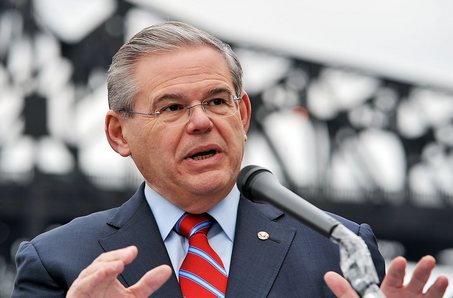 THE US SENATOR SUPPORTING THE ARMENIAN RHETORIC TO BE TRIED FOR CORRUPTION
THE US SENATOR SUPPORTING THE ARMENIAN RHETORIC TO BE TRIED FOR CORRUPTION
Hazel ÇAĞAN ELBİR 13.09.2017 -
THE PERINÇEK CASE
Ömer Engin LÜTEM 01.02.2015 -
 FORGETFULNESS OF POPE FRANCIS AND PRESIDENT GAUCK: ACCIDENTAL OR WILLFUL?
FORGETFULNESS OF POPE FRANCIS AND PRESIDENT GAUCK: ACCIDENTAL OR WILLFUL?
Turgut Kerem TUNCEL 14.05.2015 -
SARKOZY IS IN ARMENIA III
Ömer Engin LÜTEM 13.10.2011 -
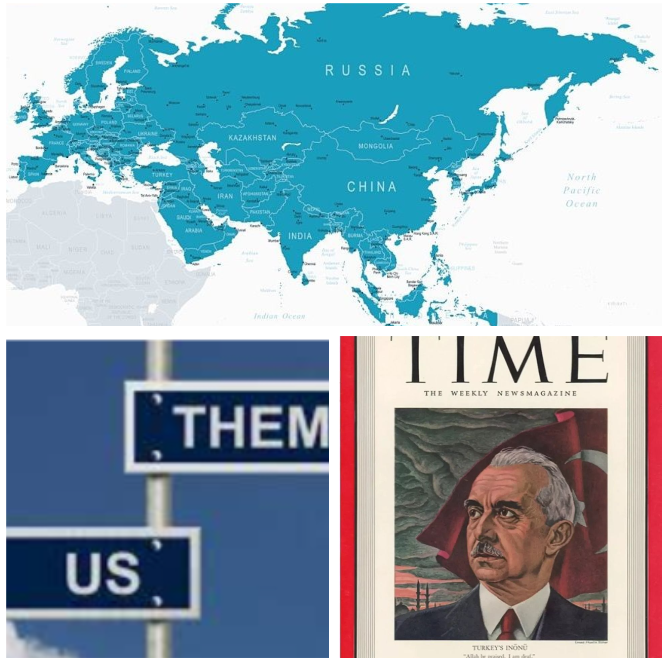 CONSTRUCTIVE EURASIANISM AND PAST REFLECTIONS
CONSTRUCTIVE EURASIANISM AND PAST REFLECTIONS
Teoman Ertuğrul TULUN 22.09.2025
-
25.01.2016
THE ARMENIAN QUESTION - BASIC KNOWLEDGE AND DOCUMENTATION -
12.06.2024
THE TRUTH WILL OUT -
27.03.2023
RADİKAL ERMENİ UNSURLARCA GERÇEKLEŞTİRİLEN MEZALİMLER VE VANDALİZM -
17.03.2023
PATRIOTISM PERVERTED -
23.02.2023
MEN ARE LIKE THAT -
03.02.2023
BAKÜ-TİFLİS-CEYHAN BORU HATTININ YAŞANAN TARİHİ -
16.12.2022
INTERNATIONAL SCHOLARS ON THE EVENTS OF 1915 -
07.12.2022
FAKE PHOTOS AND THE ARMENIAN PROPAGANDA -
07.12.2022
ERMENİ PROPAGANDASI VE SAHTE RESİMLER -
01.01.2022
A Letter From Japan - Strategically Mum: The Silence of the Armenians -
01.01.2022
Japonya'dan Bir Mektup - Stratejik Suskunluk: Ermenilerin Sessizliği -
03.06.2020
Anastas Mikoyan: Confessions of an Armenian Bolshevik -
08.04.2020
Sovyet Sonrası Ukrayna’da Devlet, Toplum ve Siyaset - Değişen Dinamikler, Dönüşen Kimlikler -
12.06.2018
Ermeni Sorunuyla İlgili İngiliz Belgeleri (1912-1923) - British Documents on Armenian Question (1912-1923) -
02.12.2016
Turkish-Russian Academics: A Historical Study on the Caucasus -
01.07.2016
Gürcistan'daki Müslüman Topluluklar: Azınlık Hakları, Kimlik, Siyaset -
10.03.2016
Armenian Diaspora: Diaspora, State and the Imagination of the Republic of Armenia -
24.01.2016
ERMENİ SORUNU - TEMEL BİLGİ VE BELGELER (2. BASKI)
-
AVİM Conference Hall 24.01.2023
CONFERENCE TITLED “HUNGARY’S PERSPECTIVES ON THE TURKIC WORLD"









